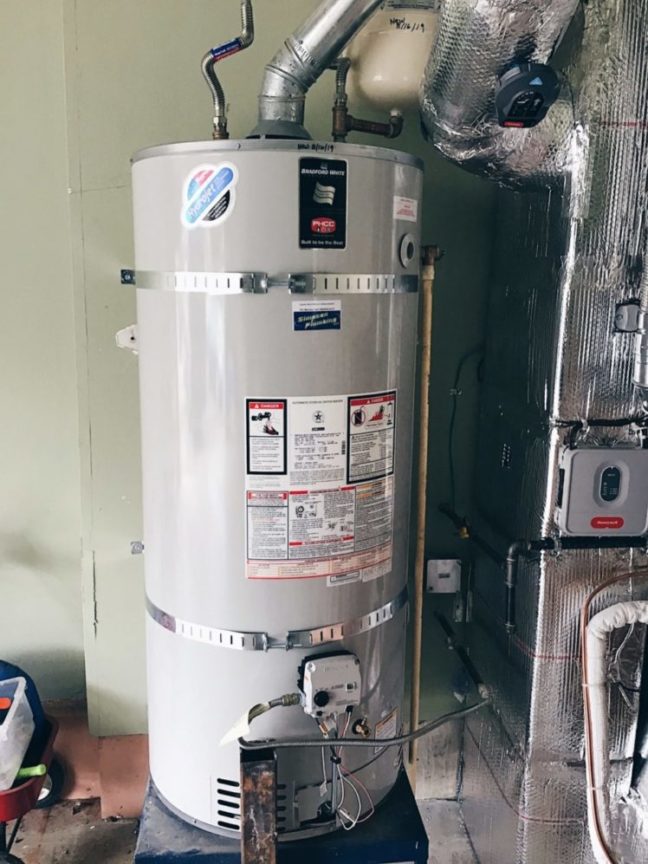Experienced Plumber Denton Offering 24/7 Plumbing Services
Total Overview to Water Heating SystemInstallment and Substitute
Comprehending the intricacies of water heating unit installment and replacement is critical for home owners looking for to make certain efficiency and dependability in their hot water supply. From selecting the suitable type and size to performing a seamless installment procedure, a number of factors have to be thought about to prevent typical mistakes.
Kinds of Hot Water Heater
When thinking about hot water heater installment and replacement, it is important to comprehend the numerous sorts of water heaters available out there. The most typical kinds consist of storage tank water heating systems, tankless hot water heater, warmth pump water heating systems, and solar hot water heater.
Container water heating systems are conventional systems that save a particular quantity of hot water, making them readily offered when needed. In comparison, tankless water heaters provide hot water on need, getting rid of the demand for storage.
Warmth pump water heating systems use electricity to transfer heat from the air or ground to warm water, providing substantial energy savings but calling for more area and certain setup problems. Solar water heaters harness solar power to warmth water, providing an eco-friendly option with prospective lasting cost financial savings, although they usually require a back-up system for gloomy days.
Recognizing these options ensures informed choices regarding installment and replacement, satisfying particular needs and choices.
Choosing the Right Dimension
Choosing the suitable size for a water heating system is important to make sure ideal performance and efficiency. A system that is also tiny will battle to meet house needs, causing inconsistent warm water availability and enhanced power intake. Conversely, an oversized water heater can cause unnecessary power waste and higher energy costs.
To identify the ideal size, consider the family's top warm water use. This can be computed based upon the variety of owners and their typical hot water demands. For example, a household of 4 may need a hot water heater with a capacity of 50 to 80 gallons, depending on the usage patterns, such as synchronised showers and washing.
Additionally, evaluate the healing price, which determines how rapidly a heating system can renew hot water after it has actually been utilized. For tankless models, focus on the flow rate, measured in gallons per min (GPM), to ensure it satisfies the family's synchronised demand.

Installation Process Summary

Following, the old system must be disconnected and gotten rid of, taking care to adhere to check these guys out local codes and laws pertaining to disposal. As soon as the old system is out, the new hot water heater can be positioned in position. This action involves linking the water supply lines, ensuring that all fittings are protected and leak-free.
After developing water links, it's crucial to link the power supply, whether electric or gas, adhering to the producer's instructions thoroughly. As soon as all links are made, the system should be loaded with water, and the power can be transformed back on. Lastly, it is essential to inspect for leaks and make certain the water heating system is functioning appropriately prior to finishing the installation procedure.
Common Installation Errors
:max_bytes(150000):strip_icc()/replacing-a-water-heater-1824920-hero-20747e5013dd49ef8e7bd63c2bf5c386.jpg)
Another constant mistake is disregarding to adhere to local codes and guidelines. Failing to stick to these standards can not only lead to security hazards but may also result in costly penalties or the demand for expensive reinstallation.
Stopping working to safeguard connections or utilizing the incorrect kind of fittings can lead to leaks and water damages. By staying clear of these typical installment blunders, home owners can ensure their water heater runs safely and effectively, maximizing efficiency and long life.
Maintenance Tips for Durability
Proper upkeep of a water heating unit is necessary for its durability and optimal performance. Normal assessments and maintenance can protect against expensive repairs and expand the appliance's life expectancy. Begin by inspecting the temperature setup; it needs to generally be set in between 120 ° F and 140 ° F for optimum energy performance and safety.
Every six months, purge the container to eliminate sediment build-up, which can impair heating performance and create corrosion. To do this, transform off the heater, link a tube to the drainpipe valve, and my link let the water run till it is clear.
When they are rusted,Anode poles need to be my site inspected each year and changed. These poles help protect against storage tank rust by drawing in destructive elements in the water.
Additionally, check the stress safety valve frequently to ensure it is operating properly. This valve is essential for preventing too much pressure accumulation within the container.
Finally, consider setting up an expert upkeep check every couple of years for comprehensive inspections and servicing. By sticking to these upkeep ideas, homeowners can dramatically boost the performance, safety, and life-span of their hot water heater, making certain reliable warm water for years ahead.
Final Thought
In verdict, proper installation and upkeep of water heating units are vital for making certain effectiveness and longevity. By comprehending these essential aspects, homeowners can achieve a dependable warm water supply while decreasing prospective problems associated to water heating system procedure.
Understanding the intricacies of water heating system setup and replacement is important for homeowners looking for to guarantee effectiveness and reliability in their hot water supply.Tank water heaters are traditional systems that keep a particular quantity of warm water, making them conveniently offered when required. In comparison, tankless water heaters provide hot water on need, removing the demand for storage space. Selecting a water heating system that is either too small or as well large can lead to inadequacies, resulting in insufficient warm water supply or too much power consumption.
By recognizing these vital elements, house owners can achieve a dependable warm water supply while minimizing prospective problems connected to water heating system operation. gas leak repair.